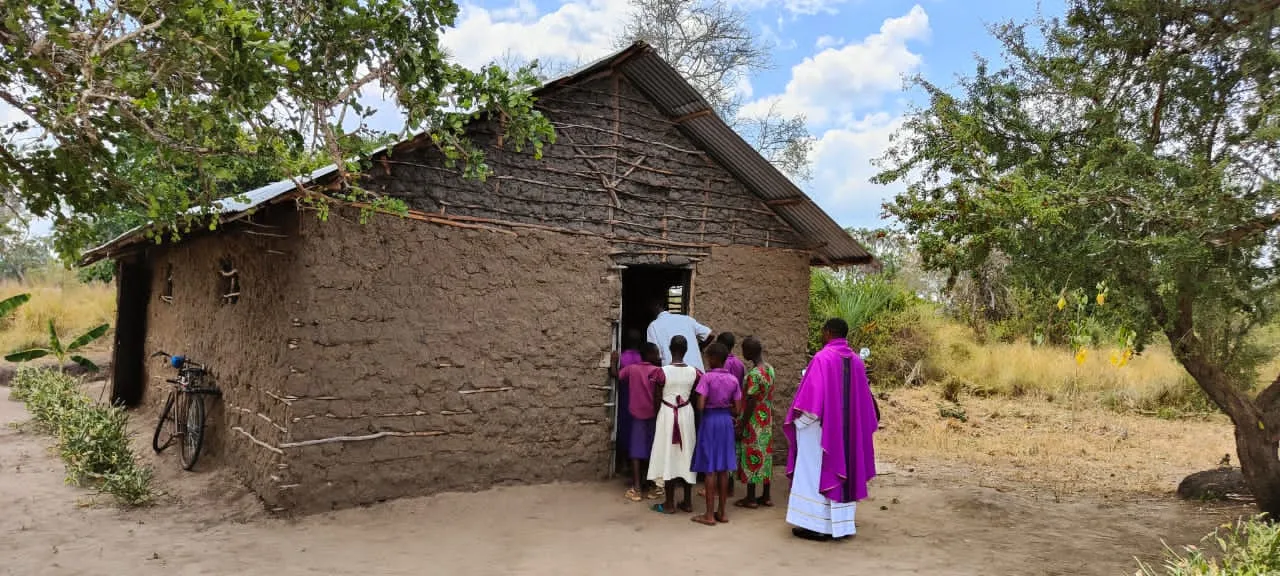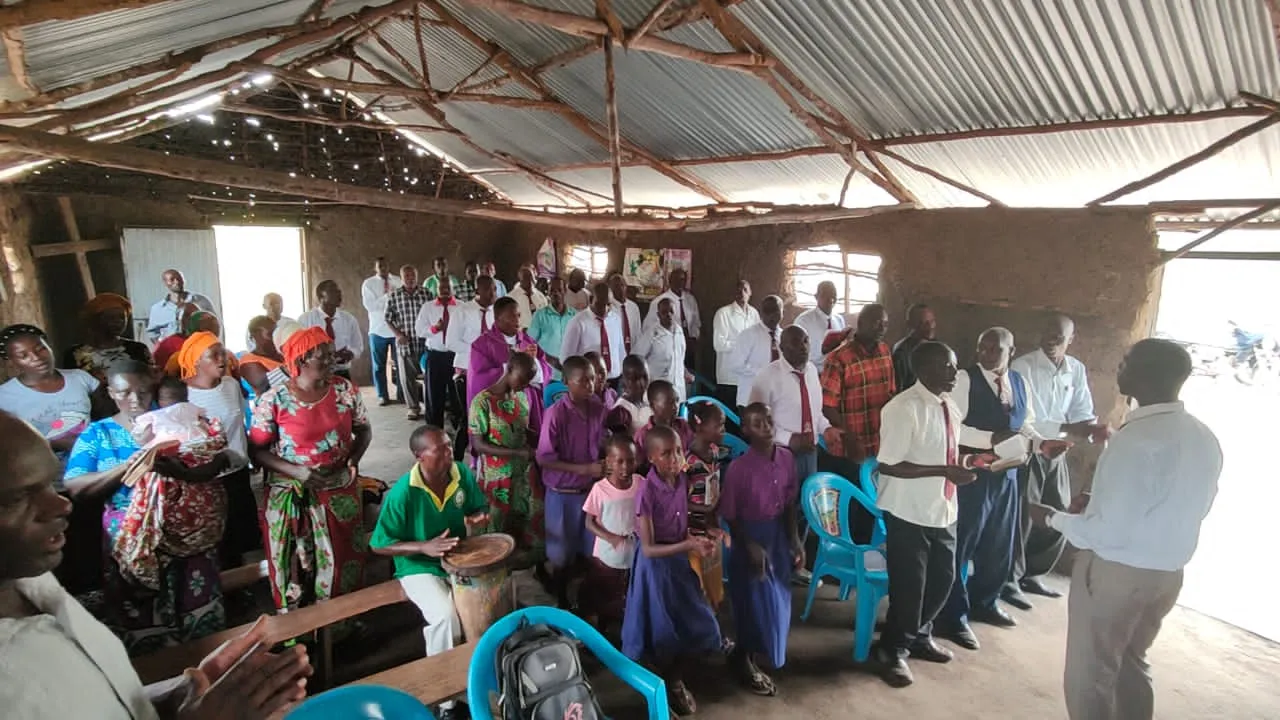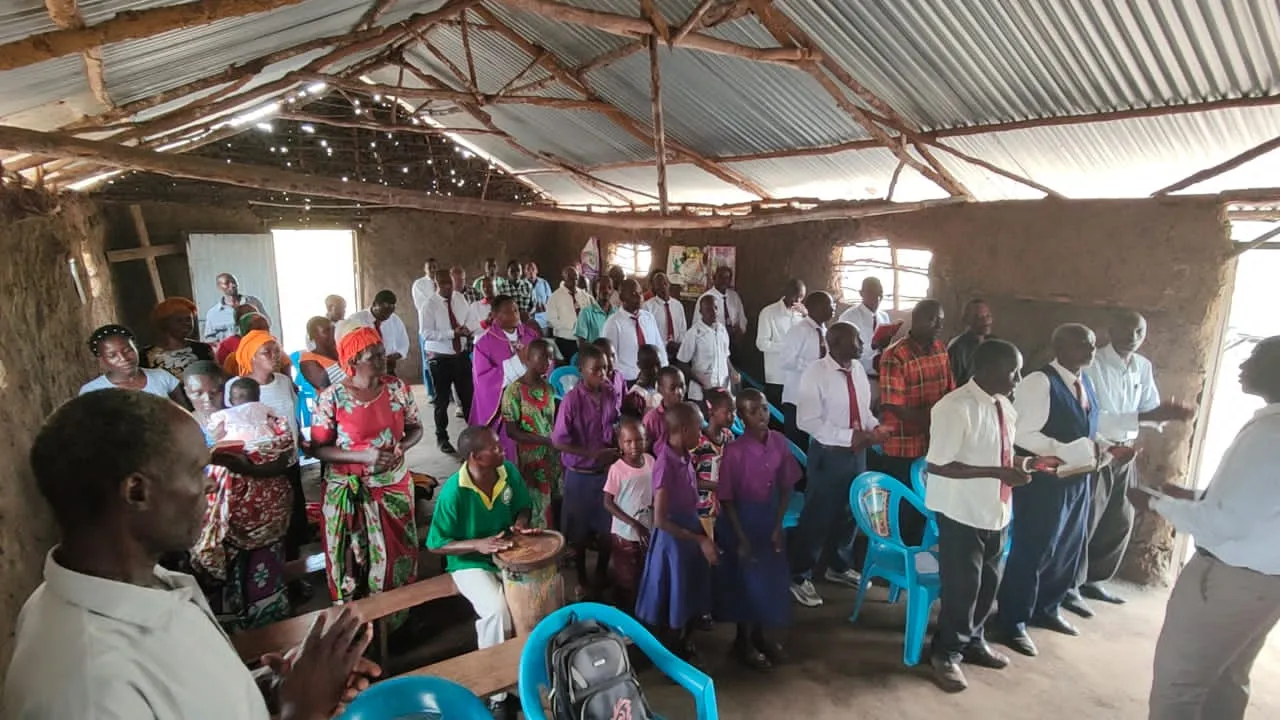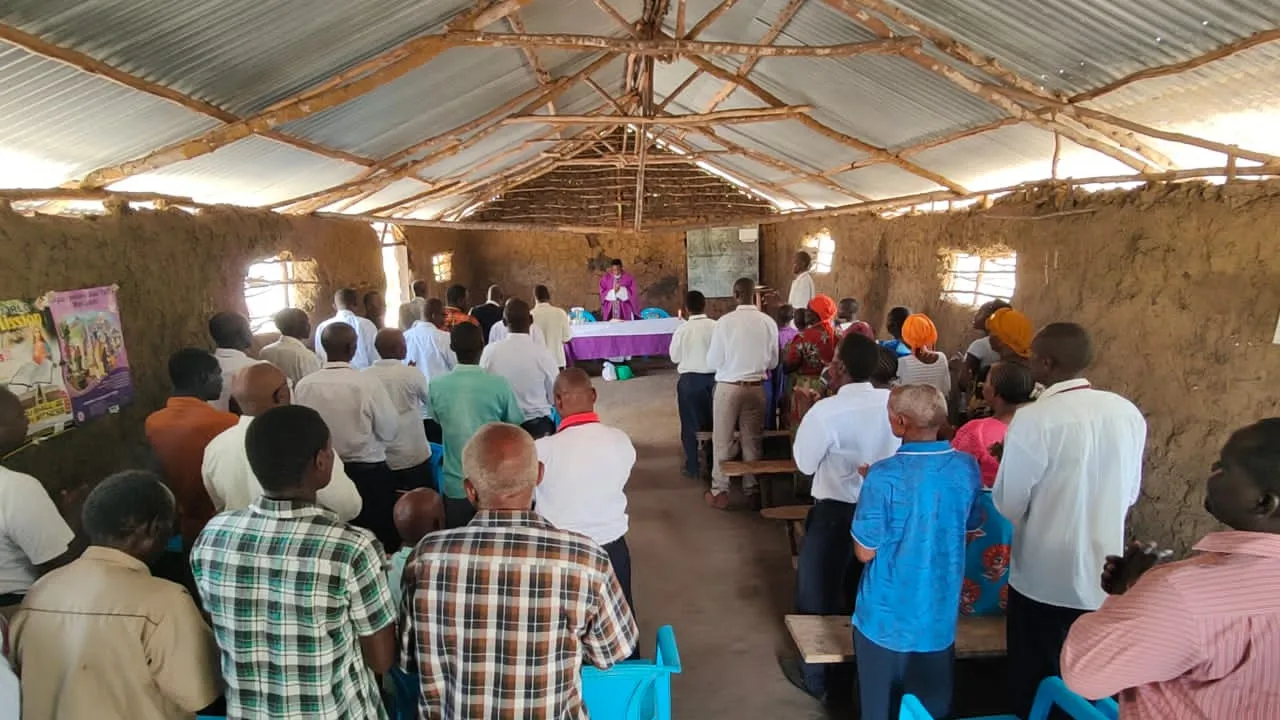Holy Mass was animated by members of the Parish Catholic Men Association (CMA) who also engaged in other social activities with Christians of St. Francis of Assisi Catholic Church Kakathe to bring life back to the village that had fallen under militant attack in December last year.
 Credit: Fr. Alex Kimbi
Credit: Fr. Alex Kimbi
Two people were killed, and scores injured in three separate attacks between December 24 and 28 last year when gunmen descended on villages inside and surrounding Boni Forest on Kenya’s border with Somalia. Boni Forest has, for decades, provided a safe haven for members of the Islamist group, Alshabaab, who launch attacks on Kenyan, Somali, and Tanzanian communities.
“Unknown people came burning down houses last year on Christmas eve. People were driven out of their farms and had to seek refuge in Witu town,” Fr. Kimbi said, adding that in Pandanguo area, which is located within Boni Forest, two people would later be killed by the suspected Al Shabaab militants who were disguised as members of the Kenya Defence Forces (KDF).
The member of the Mill Hill Missionaries (MHM) who first arrived in Witu in 2014 as a Seminarian, and later in 2018 as a Priest, said that the three attacks in December last year were not the first for the villagers who are accustomed to witnessing violence against the region's farming communities.
Fr. Kimbi first arrived in Witu as residents of Lamu, on the Kenyan coast, were nursing injuries from the Mpeketoni attack that happened between June 15 to June 17, 2014. The Al Shabaab militant group claimed responsibility for the globally condemned attack that left more than 60 people dead in the region which is just about 30 kilometers from Witu.
“There have been a series of attacks here since 2012. In 2017, the son of our Catechist was one of the people that were killed by suspected Al Shabaab militants,” the Cameroonian Priest said.
 Credit: Fr. Alex Kimbi
Credit: Fr. Alex Kimbi
Attacks on the Kenyan Coast, especially in farming communities of Pandanguo, Kakathe, and Taa villages are, according to Fr. Kimbi, economically instigated.
“People who settle in villages around are mostly those coming from the interior parts of the country and they come here to engage in farming. They often talk about facing a lot of animosity from locals. I’ve spoken to many victims of attacks and they say that the attacks are meant to scare them. The attackers are hiding under the widely known Al Shabaab narrative,” Fr. Kimbi says.




 Credit: Fr. Alex Kimbi
Credit: Fr. Alex Kimbi
 Credit: Fr. Alex Kimbi
Credit: Fr. Alex Kimbi Credit: Fr. Alex Kimbi
Credit: Fr. Alex Kimbi


